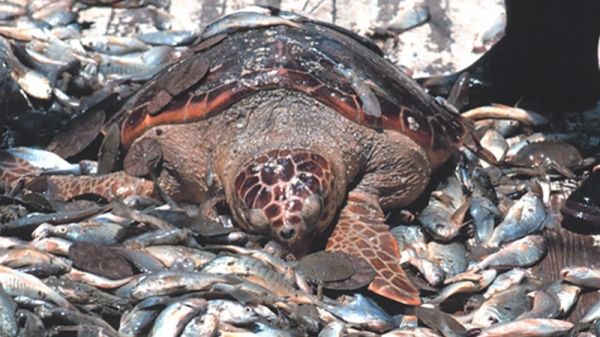Better fisheries management could reverse spiraling population declines in roughly half of threatened ocean species caught unintentionally, according to a new study co-led by University of Oregon economist Grant McDermott.
Reducing commercial fishing pressure, which involves large-scale harvesting of fish with methods that also capture untargeted species, known as bycatch, could be done with less than a 5 percent loss in profits, McDermott and nine co-authors reported in a paper in the March 16 issue of the journal Science. Eventually, reforms could raise overall yields by 15 percent and profits by as much as 80 percent, the team concluded.
“Many of the world’s fisheries are overfished,” said McDermott, an environmental economist who joined the UO’s Department of Economics last fall. “If we solve that problem, we not only give the fishing industry greater long-term profits and allow for greater sustainability of the target fisheries, we also help many of these threatened bycatch species rebound.”
Reductions in overfishing would bring important collateral benefits to a variety of marine mammals, turtles and birds, the researchers noted. Many are unintentionally caught in fishing nets and lines as bycatch along with targeted fish stocks, which are in demand as primary protein for about 40 percent of the world's human population.
Continue reading at University of Oregon.
Image via University of Oregon.


